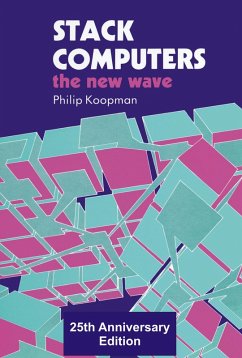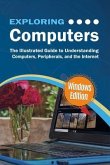Published in 1989, this was the first book to explore the new breed of stack computers led by the introduction of the Novix NC4016 chip. The author commences with an overview of how stacks are used in computing, and a taxonomy of hardware stack support which includes a survey of approximately 70 stack machines past and present. Detailed descriptions, including block diagrams and instruction set summaries, are given for seven new stack processors from Harris Semiconductor, Novix, Johns Hopkins University/APL, MISC, WISC Technologies, and Wright State University. Major topics covered also include architectural analysis of stack machines, software issues, application areas, and potential for future development.
Dieser Download kann aus rechtlichen Gründen nur mit Rechnungsadresse in A, B, CY, CZ, D, DK, EW, E, FIN, F, GR, H, IRL, I, LT, L, LR, M, NL, PL, P, R, S, SLO, SK ausgeliefert werden.









